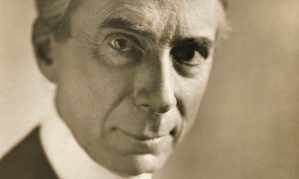Here is my presentation from Daniel Dennett’s Greenland consciousness cruise, in which I argue that we need to return to the Russell/Eddington approach to the mind-body problem:
https://www.youtube.com/watch?v=xUH-YZODuT8
Here is a letter I had in Guardian this week on the same topic:
A way forward to solve the hard problem of consciousness
I participated in the Greenland consciousness cruise referred to in your article (The I in mind, 21 January). The majority of the participants were in the Daniel Dennett camp, according to which proper respect for science requires us to deny the very existence of consciousness. David Chalmers invited myself (a panpsychist) and Professor Martine Nida-Rümelin (a dualist) along to serve as an alternative voice. What became clear to my mind is that a way forward on consciousness is beginning to emerge.
Ironically, the way forward of which I speak was first proposed in 1927, by the great philosopher Bertrand Russell and independently by the great scientist Arthur Eddington. Later philosophers such as Dennett started from the idea that the physical sciences give us a complete picture of reality, which consciousness must somehow be squeezed into. But Russell and Eddington start from the observation that while physics may be great at telling us what matter does, it doesn’t really tell us what it is. As Eddington put it, “Our knowledge of the nature of the objects treated in physics consists solely of readings of pointers [on instrument dials] and other indicators.” What do we know of what matterintrinsically is beyond how it affects our instruments? Only that some of it – ie the stuff in brains – involves consciousness.
Consciousness then should be our starting point in trying to work out what matter is, rather than something we try to squeeze in as an afterthought. Unfortunately the Russell/Eddington approach did not fit with the positivist zeitgeist of the latter half of the 20th century and was swiftly forgotten about. Several decades of failed attempts to squeeze mind into matter resulted in Chalmers’ famous declaration that we have a “hard problem of consciousness”. But more recently a revival of the Russell/Eddington approach has started to bear fruit. It could be that the hard problem of consciousness is due to a wrong turn that scientists and philosophers took in the middle of the 20th century – a wrong turn we may be about to correct.


Pingback: A New Approach to Consciousness | Conscience and Consciousness